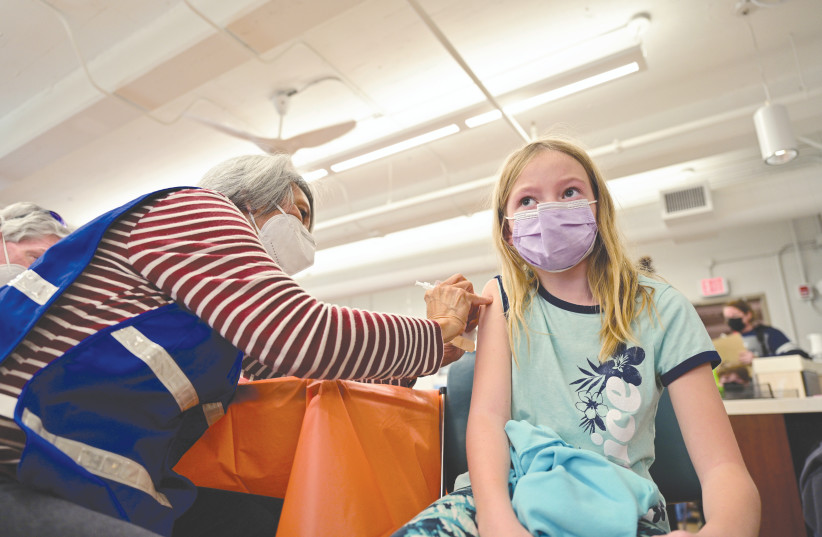The immunity against the coronavirus among the Israeli population appears to be declining, an expert warned the coronavirus cabinet on Tuesday, as the country registered the highest number of cases in a month.
Talking to the ministers, Prof. Eran Segal, a computational biologist for the Weizmann Institute, said that since the beginning of November, numbers have been pointing to a fall in the immunity of the population, similar to what happened in May.
According to Segal, the decline is caused by the fact that more time has passed for people who were only vaccinated with the first two shots since they were inoculated and therefore their immunity is dropping – and a similar scenario is occurring for those who recovered but did not get vaccinated.
"This decline is going to continue unless we intervene and continue to vaccinate," said Segal.
While the scientist acknowledged that it is too early to say whether there is also a decline in vaccine efficacy among those who received a booster, he added that it is possible that it is also happening.

Some 6.26 million Israelis have received at least one dose of the vaccine, 5.76 million at least two and 4.05 million have had the booster shot.
Israel began its booster campaign in August, after registering a clear decline in immunity among those who had received their second shot more than six months earlier.
Health experts have been hoping that the third shot would guarantee protection from the virus for a longer period.
At the moment, the vast majority of cases are registered among those who are unvaccinated – among them over 50% among children younger than 12.
In the past week, 77% of the new virus carriers identified were never vaccinated, and another 10% were among those whose vaccine is considered expired, but around 9% of the cases were recorded among Israelis who received a booster.
Some 682 corona cases were registered on Monday, the highest number since the end of last month, as the Health Ministry reported on Tuesday, 463 of whom were schoolchildren.
The authorities hope that the new drive to inoculate the 5-11 cohort will help halt new infections.
Israel has 1.23 million children in the relevant age group, and as of Tuesday, over 25,000 parents had set an appointment to vaccinate them.
Among the first to receive the shot was Prime Minister Naftali Bennett’s nine-year-old son, David.
“Today we are starting the nationwide campaign to vaccinate children, first of all, to safeguard our children,” Bennett said as he accompanied David to a Clalit Health Services clinic in Herzliya. “This safeguards both children and parents, and the entire State of Israel. I call on all Israeli parents to come and have their children vaccinated.”
During the cabinet, Bennett also asked that all students undergo an antigen test before returning to school after the Hanukkah break, as they did before the beginning of the school year and after the high holidays.
In addition, he said that if there is a concern that specific events during Hanukkah are causing new outbreaks, they will be shut down.
During the meeting, Hebrew University experts warned that by the end of December Israel could find itself again in a situation with around 2,500 new cases a day but expressed confidence that by increasing its level of vaccination it will avoid this scenario.
Health experts and officials have been worried about the increase in the R, or reproduction rate, which represents how many people each virus carrier can infect on average and shows what the situation was 10 days earlier.
The R continued to climb on Tuesday reaching 1.08 on Tuesday. On Monday, it stood at 1.04.
An R over 1 indicates that the disease is no longer declining.
During the cabinet, Coronavirus Commissioner Prof. Salman Zarka warned that Israel may need to declare a fifth wave of the coronavirus outbreak if the R continues to rise.
In light of the situation, the cabinet decided that no further restriction will be lifted at the moment and the validity of regulations such as indoor occupancy limits and the green pass outline will be extended for another two weeks subject to the approval of the Knesset Law and Constitution Committee.
